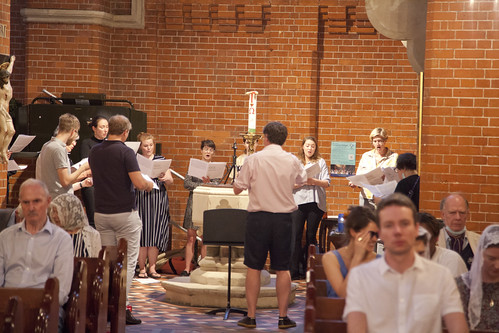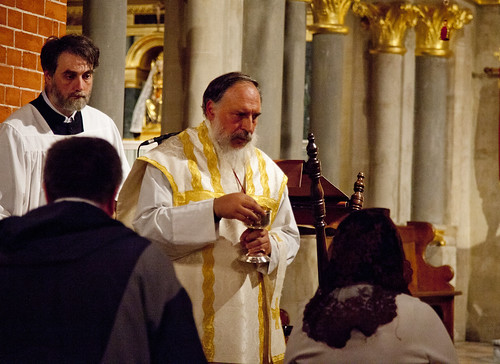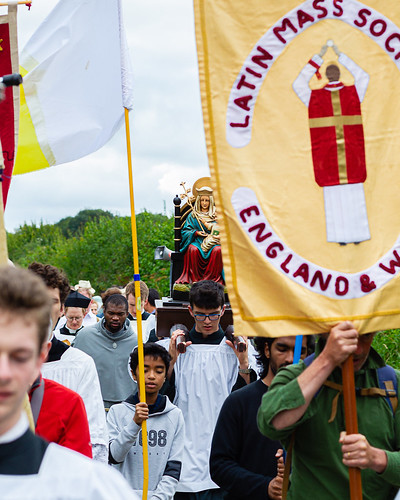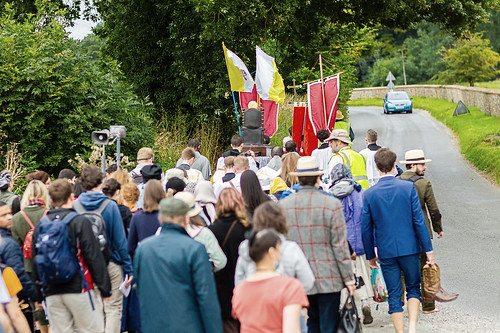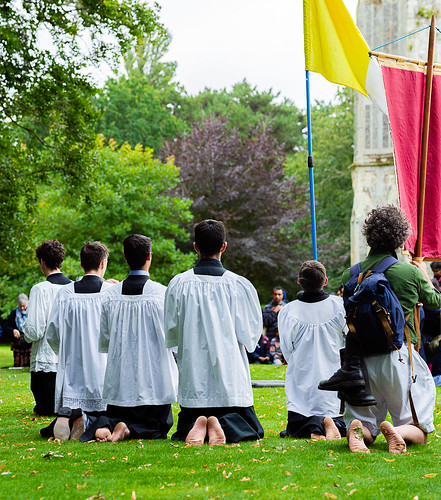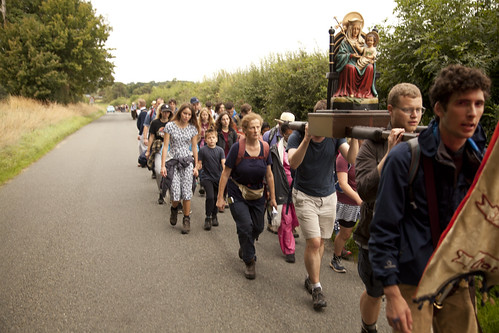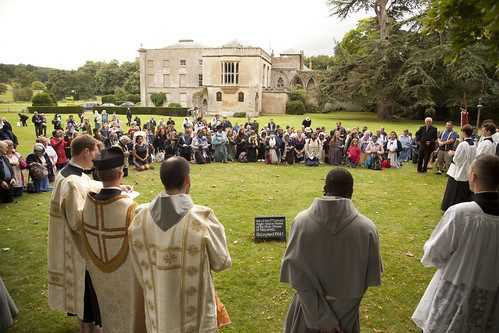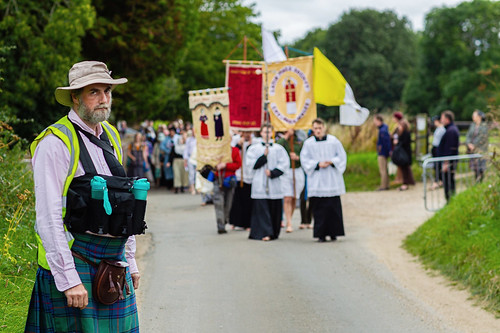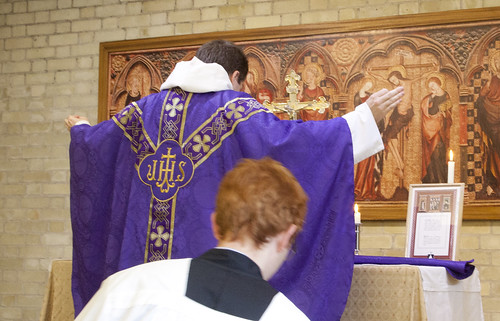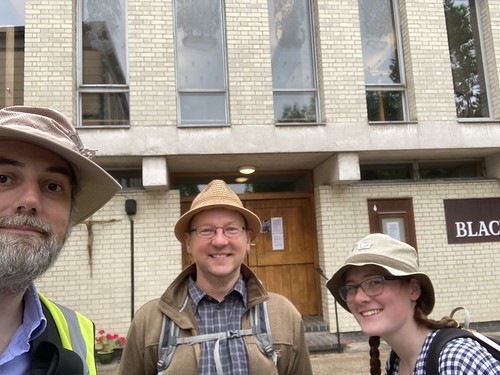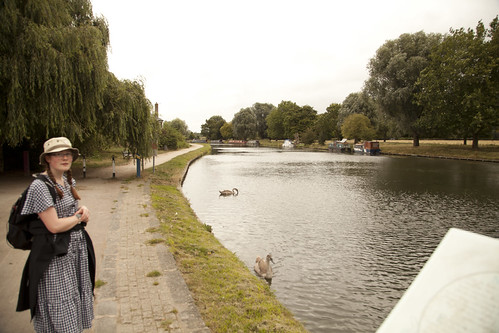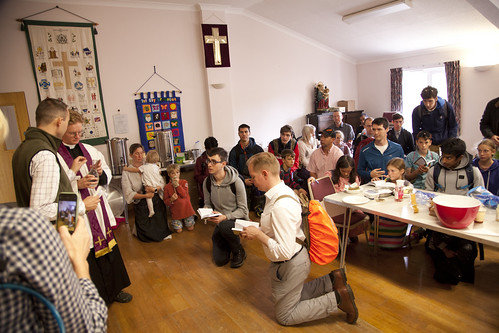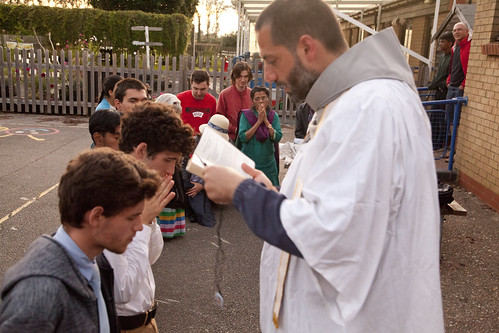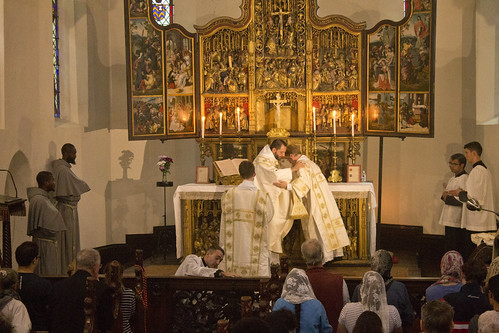Chairman's Blog
The challenge of a new school year
 |
| Quiz at a St Catherine's Trust Summer School a while back. We've not had the Summer School for two summers due to the pandemic. |
My first article in a new initiative, a weekly Digest (bulletin) from Voice of the Family.
Two recent news articles greeted the start of the academic year. The Irish Times informs us that official statistics confirm that since teacher assessments have in whole or in part replaced anonymised formal examinations, the relative performance of boys against girls has fallen. In the Daily Telegraph, Melanie McDonagh complains that her 14-year-old daughter’s Catholic school has brainwashed her into being a woke activist.
These are both troubling claims, and they may seem extreme, but the people making them are far from marginal. The problem of systemic bias against boys has been acknowledged by the Irish government, which is hardly a bastion of cultural conservatism. It was in fact established on the basis of world-wide statistics some years ago, in a study sponsored by the OECD. The creation of a generation of school-child activists all saying the same things about race and gender has been denounced by Professor Louise Richardson, Vice-Chancellor of Oxford University. Lest anyone imagine she is some conservative culture warrior, she recently made headlines apologising for Oxford’s education of the prominent Conservative Party politician Michael Gove.
Iota Unum talks in London are back: Jamie Bogle on 24th Sept
 |
| Fr Edward van den Bergh giving the last Iota Unum talk of 2019 |
After a long break necessitated by the epidemic, we are returning to our face-to-face talks in London.
The Latin Mass Society's 'Iota Unam' talks take place on Friday evenings in Our Lady of the Assumption Warwick Street (please enter by the back entrance into the basement: 24 Golden Square, W1F 9JR): click for a map.
Sept 24, James Bogle: Bl Charles of Austria
Oct 22, Joseph Shaw: Headship and Hierarchy in the Family
Nov 19, Dominic O’Sullivan: Spanish Integralism
Dec 10, Sebastian Morello: de Maistre on Liturgy and Politics
Jan 29: Tom Pink: 'The Papal Monarchy: the exercise of power in the Church, its theological and legal basis, and its limits'
Why priests should learn Latin
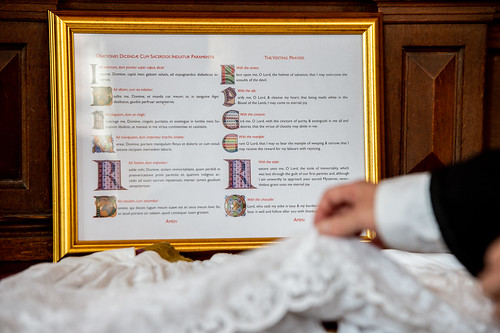 |
| Bilingual Vesting Prayers in the Sacristy of Westminster Cathedral |
There is an amusing video on YouTube showing an American Latinist engaging priests in the Vatican in spoken Latin. He remarks that he spoke to a dozen priests, but only three were brave enough to go on camera with him and use Latin in actual dialogue.
Spoken Latin might sound like the preserve of hobbyists, like spoken Elvish or Klingon, but being able to speak a language is the ultimate test of fluency, and for the Church, Latin isn’t just any other language. As well as being the sacred language of the liturgy, it is an indispensable key to the Church’s theology, history, law, philosophy, and poetry. As Pope Benedict XVI described it, it is the language the Church considers as her own.
It is for this reason that Latin has always formed an essential part of the education of the clergy. The Second Vatican Council’s decree on Priestly Training, Optatam Totius, says seminarians “are to acquire a knowledge of Latin which will enable them to understand and make use of the sources of so many sciences and of the documents of the Church” (13). This means a serious grasp of the language: being able to sit down and read St. Augustine, for example—not as a homework exercise, but because you want to know what he says about something.
Read the whole thing there.
Introductory video from the Guild of St Clare
Statement of the Religious Superiors (and Taylor Marshall)
Monday Masses at Maiden Lane: professionally-led singing returns
We are now back, and last night we had the first Mass with the newly formed Southwell Consort. This is led by Dominic Bevan and consists mainly of men and women with musical training who have chosen not to pursue music as a career. It is an opportunity for them to sing some lovely sacred music in the liturgical setting for which it was composed. Last evening they had a whopping 17 singers. They sang Missa O Quam Gloriosum, Victoria; Ave Maria a 8, Victoria; Panis Angelicus, Rebelo, and I must say (hearing this from the sanctuary where I was serving) it was extremely impressive.
Next week, the Houghton Schola will return: also to be led regularly by Dominic Bevan, this is an all-male group singing Gregorian Chant, for singers of all levels of experience.
The next Monday evening Mass will be a High Mass, a Votive of the Blessed Sacrament, part of the series of Masses in London linked to the Eucharistic Congress taking place in Hungary. In honour of the occasion the Houghton Schola will be joined by some polyphonists.
LMS Walsingham Pilgrimage: more photos
LMS Walking Pilgrimage to Walsingham, Part 2
The little girl in red managed the entire walk, 56 miles over three days.
Our fantastic non-walking volunteers, on Saturday evening in Great Massingham.
Some of the tents at Great Massingham.
Dinner at Great Massingham Village Hall.
That evening we enrolled four members of the LMS' servers' guild, the Society of St Tarcisius.
Walking on Sunday morning, accompanied by the processional statue.
The final Mass of the Pilgrimage, in the Catholic Shrine in Houghton St Giles. The medieval shrine at Walsingham was of course destroyed by Henry VIII; the restored Catholic shrine today is based around a medieval 'slipper chapel', a wayside pilgrims' chapel, the last on the route and the marker of the Holy Mile to the shrine proper. The larger church there, the 'Reconciliation Chapel' pictured above, is always a challenge to photograph, but this year we filled it, with a congregation of about 350. This included many people who joined us by car and coach, and also people who just happened to be at the shrine, including many Syro-Malabar Catholics and Travelers.
So after Mass we form up again, with many more people than before, and walk the Holy Mile singing the Rosary and the Te Deum.
We arrive at what is left of Walsingham Priory, which once housed the Holy House. This represented the house of the Annunciation in Nazareth, and was established at the command of Our Lady herself on the eve of the Norman Conquest.
There we venerated the processional statue we had brought with us and received the special blessing of returning pilgrims from the Roman Ritual.
The following morning, those of us who have stayed the night locally squeeze into the Slipper Chapel for a Sung Mass.
LMS Walking Pilgrimage to Walsingham: Photos, Part 1
Contradictions among those defending Traditionis Custodes
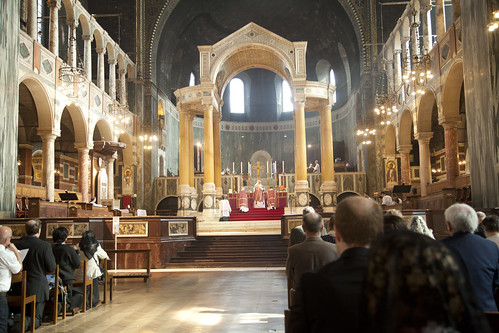 |
| Final blessing at the High Mass in Westminster Cathedral; Mass for the Latin Mass Society's AGM |
My latest on 1Peter5: on some conflict among those who defend Traditionis Custodes.
Pope Francis has offered two reasons for wishing to bring celebrations of the Traditional Mass to an end: attitudes of some of the faithful which have become associated with this form of the Mass, and the idea that the unity of the Church requires a unity of liturgical rite. Accordingly, some of his defenders have focused on one of these points, and some on the other. Both are having difficulty explaining and justifying Pope Francis’ action.
I recently fisked an article by Michael Sean Winters which laid the blame for Traditionis Custodes (TC) on the people who like it, singling out the journalist Michael Brendan Dougherty. There is much wrong with Winters’ argument, but suppose he was right about Dougherty being a dangerous schismatic, what would be the significance of this? To be crass about it, who cares what some journalist thinks? If he were the head of an organization, clerical or lay, with serious popular support, which was closely associated with the TLM, that might indicate a wider problem, but as it is, it proves nothing at all.
As if realizing that he needed to widen his evidence base, towards the end of his article Winters brings in Martin Mosebach, accusing him of rejecting Vatican II without being able to quote him doing so, and the views of George Weigel, apparently unaware that Weigel has a long and distinguished history of gratuitouslyinsulting Catholics attached to the Traditional Mass. As a representative of the movement, he doesn’t really fit the bill. Nevertheless, that’s the best Winters can come up with.
Another problem with this approach is identified by Terrence Sweeney on the Where Peter Is blog, and in fact is acknowledged even by Winters himself: in Sweeny’s words, “Even if many are acting schismatically, this does not justify a restriction that affects those who attend the Tridentine rite but remain faithful.”
Read it all there.

